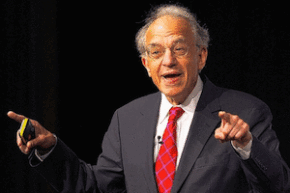By Editor Test
"Every time the CEO of is forced to resign, the evidence mounts that these organizations have become impossible to manage in a responsible way that generates sustainable value for shareholders and keeps taxpayers out of harm’s way," writes Johnson, an MIT economist.
By Editor Test
William C. Dudley, president of the New York Fed, spoke at the Oct. 15 meeting of the National Association for Business Economics in Manhattan. In this excerpt from his prepared remarks, he addressed the Fed’s exit strategy from its current low-interest policy.
By Editor Test
Participants who use the Financial Engines managed account program, Professional Management, which costs each participant up to 60 basis points a year depending on account size, do not need to pay extra to use Income+.
By Editor Test
“Business investment spending is likely to remain weak in Q4 despite healthy corporate cash levels due to concerns about the ‘fiscal cliff’ and how it will be resolved once the U.S. Presidential election is over," according to Prudential's report.
By Editor Test
As of year-end 2010, about 46% of all IRA assets were in equities, 20% in bonds, 11% in balanced funds, 9% in money, and 15% in “other” investments, EBRI said.
By Editor Test
Matt Grove, head of annuities at New York Life, recently alerted his LinkedIn network to two high-level openings in annuities at the big mutual, one in variable annuities and another in strategic planning. The firm's retail annuity team is expanding, he wrote.
By Editor Test
"Economic management, especially in the United States, would be greatly facilitated if resort could occasionally be had to witchcraft. Monetary policy, by far the most promising possibility, involves none. This every good citizen must regret"--John Kenneth Galbraith, The Affluent Society (Houghton-Mifflin, 1958), p. 199.




